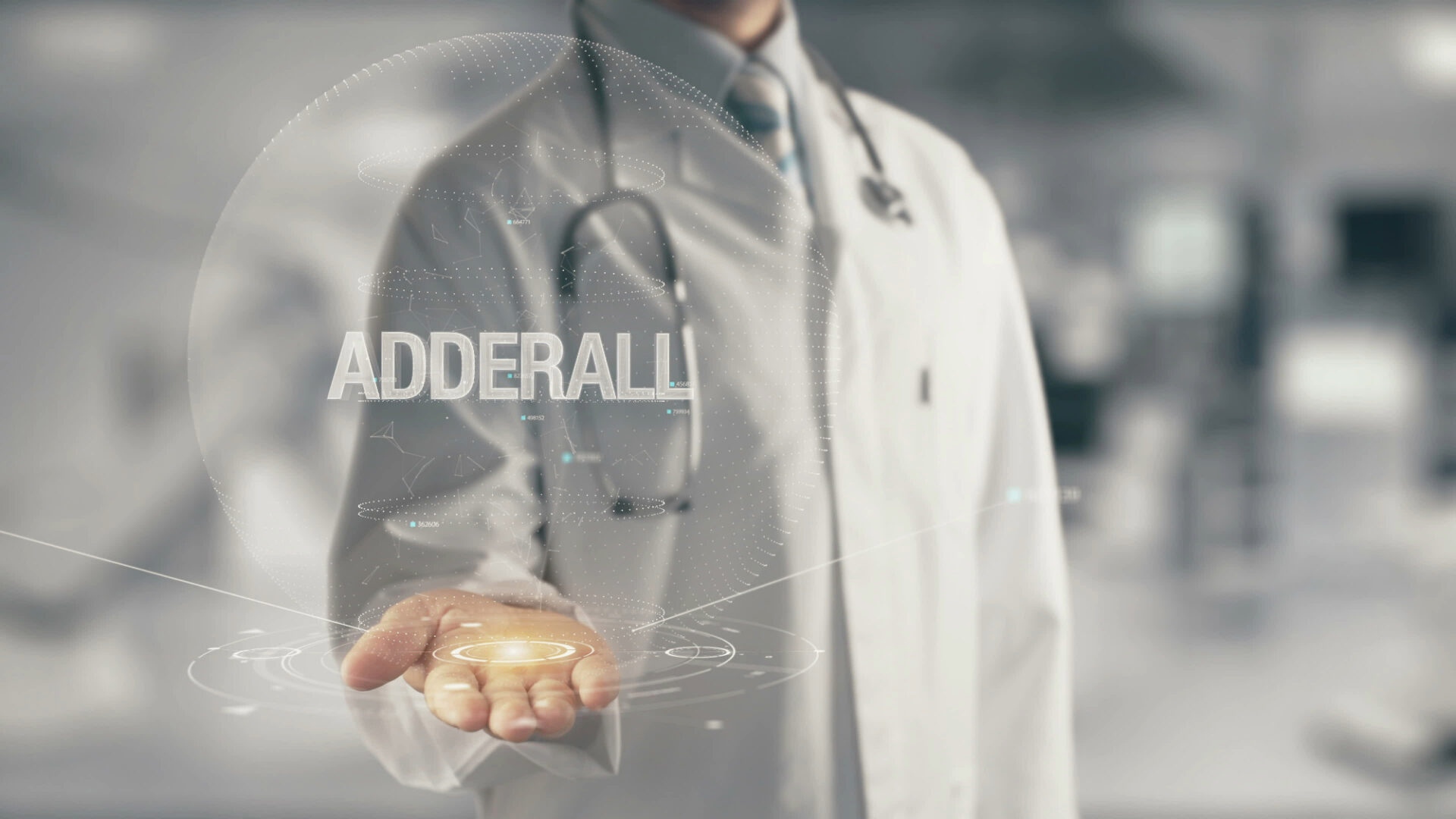Introduction
In the fast-paced world of modern business, there’s a growing interest in anything that can provide a competitive edge. Among the tools individuals are turning to is Adderall, a prescription medication initially intended for those with ADHD and narcolepsy. Its reputation as a focus-enhancing drug has led to its surging popularity in workplaces, creating debates around ethics, health, and performance. Just as noteworthy is the burgeoning interest in over-the-counter alternatives to Adderall, a testament to the desire for increased productivity without potential prescription pitfalls.
Non-Prescription Alternatives
Prescription medications like Adderall come with a bevy of concerns. Potential side effects, the risk of dependency, and the medical and legal ramifications of off-label use have created a significant demand for safer over the counter Adderall alternatives.
Popular Over-the-Counter Options
Many turn to over-the-counter (OTC) solutions in hopes of achieving similar cognitive enhancement without a prescription’s strings attached. Some of these include:
Caffeine and L-Theanine Combinations: A favorite among nootropics enthusiasts, this combination aims to provide the alertness associated with caffeine while the L-Theanine may offset potential jitters, creating a calm focus.
Bacopa Monnieri: An herb traditionally used in Ayurvedic medicine, Bacopa Monnieri has shown promise in improving memory and cognitive function over prolonged use.
Rhodiola Rosea: Often used to combat fatigue, this adaptogen might boost mental clarity and energy, especially under stress.
Noopept: Though not available for purchase in some countries without a prescription, in places where it’s OTC, Noopept is touted for its potential memory-enhancing and neuroprotective properties.
Comparing Efficacy and Safety to Adderall
While the allure of OTC solutions is undeniable, one must approach them with a discerning eye. Firstly, the efficacy of these supplements varies greatly among individuals. While some might find a notable boost in their concentration from a caffeine and L-Theanine combo, others might barely notice a difference.
In terms of safety, the main advantage of OTC supplements is the lower risk of severe side effects or dependency, compared to Adderall. However, that doesn’t render them risk-free. Supplements can interact with other medications or conditions, leading to unexpected side effects. For instance, excessive caffeine can lead to palpitations, insomnia, and increased blood pressure.
When juxtaposing them against Adderall, it’s crucial to remember that while Adderall has undergone rigorous clinical trials to determine its safety and efficacy for its approved uses, many OTC alternatives lack the same depth of research. Some have studies vouching for their cognitive benefits, but these often aren’t as comprehensive as those for prescription drugs.
Moreover, the dose of active ingredients can vary widely between brands and products, leading to unpredictable effects.
While the drive to maximize productivity in today’s demanding workplaces is understandable, it’s essential to prioritize safety. Whether considering Adderall or its OTC alternatives, thorough research and medical consultation are invaluable. As the adage goes, “It’s better to be safe than sorry.”
The Science Behind Adderall
What Adderall is and its primary medical uses.
Adderall is a prescription medication that contains a combination of amphetamine salts, specifically amphetamine and dextroamphetamine. These are central nervous system stimulants that affect chemicals in the brain and nerves, which contribute to hyperactivity and impulse control.
Traditionally, Adderall is prescribed for the treatment of Attention Deficit Hyperactivity Disorder (ADHD) and narcolepsy. For those with ADHD, it can help increase attention and decrease impulsiveness and hyperactivity. In narcolepsy patients, it acts to combat the excessive daytime sleepiness characteristic of the disorder.
How it works on the brain: Neurochemistry.
Neurochemically speaking, Adderall primarily boosts the activity of two neurotransmitters in the brain: dopamine and norepinephrine. By doing so, it helps increase concentration and focus, making it effective for managing ADHD. Specifically, Adderall blocks the reuptake of these neurotransmitters, leading to an increased concentration in the synaptic cleft. This results in heightened arousal, attention, and vigilance.
Off-label Uses and the Push for Productivity
How and why some employees started using Adderall for enhanced focus and energy.
The off-label use of Adderall began to gain traction in high-pressure environments like universities and competitive workplaces. Individuals without ADHD found that the drug could enhance their ability to focus on tasks for extended periods, improve their cognitive performance, and increase their energy levels, all of which are highly prized in such settings.
Reports from users about heightened concentration, the ability to work for longer hours without fatigue, and enhanced cognitive processing led to its popularity among professionals, especially in sectors like finance, tech, and law.
Medical necessity vs. seeking a competitive edge
While Adderall is a lifesaver for those with genuine medical needs, like ADHD, its off-label use often stems from the desire to gain a competitive edge. This blurring of lines between medical necessity and the pursuit of enhanced performance has raised numerous concerns, with many debating where the boundary should lie.
Ethical Implications
The fairness of using performance-enhancing drugs in a professional setting.
The use of Adderall as a performance enhancer opens up an ethical Pandora’s box. Is it fair for individuals to use such drugs to get ahead in competitive fields? If some are using it to enhance their performance, does it create a pressured environment where others feel the need to do the same to keep up?
Many argue that it’s akin to doping in sports. Just as athletes might take banned substances to run faster or lift heavier, professionals might use Adderall to think sharper or work longer.
Challenges and potential disadvantages for those not taking the drug.
For those who opt not to, or can’t take Adderall, the environment can become increasingly challenging. They may find themselves at a perceived disadvantage, struggling to keep up with colleagues who can work longer hours or produce quicker results due to their enhanced cognitive abilities.
This disparity can lead to various problems, from increased workplace stress and burnout to feelings of inadequacy or pressure to start using the drug to level the playing field.
The use of Adderall, both as a medical tool and a cognitive enhancer, is a double-edged sword. While it brings undeniable benefits to those who need it, its off-label use introduces ethical dilemmas and challenges that modern workplaces must grapple with. As the debate continues, it becomes ever more crucial for individuals and organizations to make informed, ethical choices.
Health Risks of Adderall
Immediate side effects of consumption.
Adderall, like many medications, can come with a range of side effects. Even when used as prescribed, some individuals may experience:
Increased heart rate and elevated blood pressure.
Dry mouth and suppressed appetite.
Insomnia or disruptions in sleep patterns.
Nervousness or feelings of jitteriness.
Stomach issues like nausea or upset stomach.
Mood swings or emotional changes, including increased anxiety or agitation.
For those without ADHD, the side effects can be more pronounced, as the medication impacts an already “normal” level of neurotransmitters in the brain.
Long-term implications and potential for addiction.
Prolonged misuse of Adderall can lead to serious health issues. These include:
Cardiovascular problems: The stimulant effects can strain the heart and potentially lead to heart attacks or strokes, especially in those with underlying heart conditions.
Mental health deterioration: Chronic use can exacerbate anxiety, lead to paranoia, or even induce psychotic episodes.
Physical wear and tear: The suppression of natural needs like sleep and food can have cascading effects on one’s health.
Moreover, Adderall is classified as a Schedule II controlled substance, meaning it has a high potential for abuse and can lead to severe psychological or physical dependence. Over time, one might find they need increasing doses to achieve the same effect, leading to a dangerous cycle of addiction.
Employers’ Perspective
How companies view Adderall and stimulant use.
Companies and employers are increasingly becoming aware of the off-label use of Adderall in the workplace. While some might turn a blind eye, viewing it as a means to enhance productivity, others are concerned about the potential risks associated with its misuse. This includes the health and well-being of employees, potential liabilities, and the ethical considerations of performance-enhancing drugs.
Policies and potential legal ramifications.
Companies are often bound to prioritize the well-being and safety of their employees. With the rising misuse of Adderall, many businesses are incorporating drug policies that address the use of prescription stimulants.
Legally, employers can face ramifications if an employee’s drug misuse leads to workplace accidents, especially if the company was aware of the drug use. Additionally, companies could find themselves in a complicated situation if they’re seen to be endorsing or turning a blind eye to drug misuse.
Conclusion
Reflecting on the balance between productivity, health, and ethics.
The allure of Adderall in the workplace is a microcosm of a broader societal challenge: balancing the drive for productivity and success with well-being and ethical conduct. While the medication offers tangible benefits for those with medical needs, its off-label use introduces a myriad of issues. It’s essential to question: At what cost does this enhanced productivity come? And is it worth the potential toll on individual health and the ethical fabric of our professional environments?
A call for safer practices and informed choices in the workplace.
As the boundaries between work and personal life blur, and the pressures of modern-day work culture intensify, there’s an even more pressing need for workplaces to advocate for the well-being of their employees. Employers and employees alike should champion informed choices, prioritize health over relentless productivity, and continually re-evaluate the ethical considerations inherent in these choices.
In the end, a holistic approach to work—one that values the individual as much as the output—is paramount. As the debate around Adderall in the workplace continues, it stands as a reminder of the complexities of modern work life and the challenges we must navigate.















